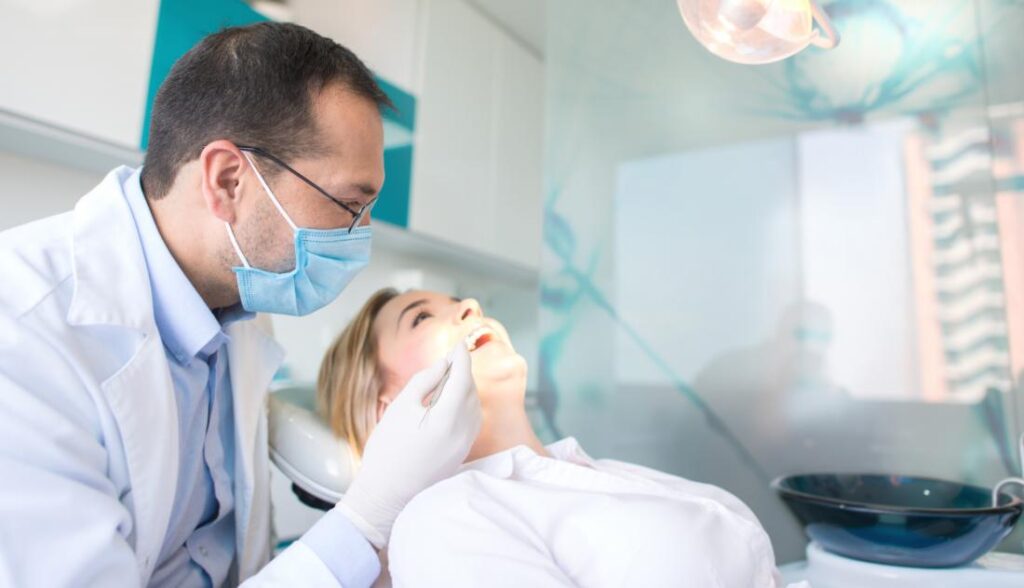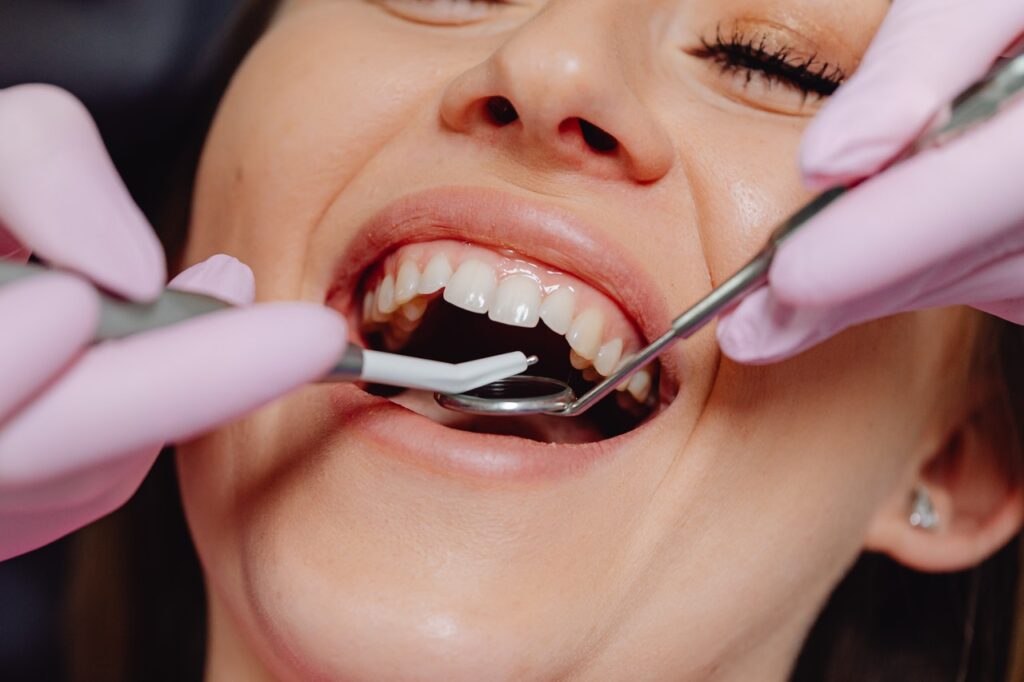Table of Contents
Coping with Soreness after Your GUMS Procedure
Intro
If you have recently had a GUMS Procedure, you may be feeling some soreness and discomfort afterwards. This is perfectly normal and nothing to be worried about. In this blog post, we will discuss the common causes of soreness after your GUMS Procedure and how to best cope with it. Read on to learn more about how to manage the discomfort that can come after a GUMS Procedure.
What to expect after your GUMS procedure
After your GUMS procedure, it is normal to experience some discomfort and soreness. This is due to the anesthesia wearing off and the natural healing process taking place. The level of discomfort can vary from person to person, but it is important to remember that it is temporary and will subside with time.
You may also notice some swelling in the treated area, which is a normal response to the procedure. This swelling should start to decrease within a few days. It is important to follow your dentist’s post-procedure instructions to ensure proper healing.
In addition to soreness and swelling, you may also experience some minor bleeding. This is normal and can be managed by gently biting down on a clean gauze pad placed over the treated area. If bleeding persists or becomes heavy, contact your dentist.
It is important to rest and take it easy after your procedure. Avoid strenuous activities for the first few days and give your body time to heal. You may also want to plan your meals accordingly, opting for soft foods that are easy to chew and swallow.
Remember to continue practicing good oral hygiene during your recovery. However, be gentle when brushing and flossing around the treated area to avoid irritating the gums.
If you experience severe pain, prolonged bleeding, or any other concerning symptoms, it is important to contact your dentist or doctor immediately. They can assess your situation and provide appropriate guidance.
Overall, it is normal to experience some discomfort and soreness after your GUMS procedure. With proper care and following your dentist’s instructions, you can ensure a smooth recovery process.

Managing pain and discomfort
After your GUMS procedure, it is normal to feel a little sore and uncomfortable as the anaesthesia wears off. Here are some tips to help you manage pain and discomfort during your recovery:
1. Take pain relievers as prescribed by your dentist or doctor. Over-the-counter pain medications like acetaminophen or ibuprofen can also be helpful.
2. Use ice packs on the affected area for 10-15 minutes at a time to help reduce swelling and discomfort.
3. Avoid smoking or using tobacco products, as they can slow down the healing process and increase discomfort.
4. Get plenty of rest and try to avoid strenuous physical activity for a few days after your procedure.
5. Use a soft-bristled toothbrush and be gentle when brushing near the affected area.
6. Rinse your mouth with warm salt water (1 teaspoon of salt dissolved in a cup of warm water) a few times a day to help promote healing and reduce inflammation.
Remember that everyone’s pain tolerance and recovery time is different, so don’t be afraid to reach out to your dentist or doctor if you have any concerns or questions. With proper care and management, you should start feeling better within a few days of your procedure.
Eating and drinking tips for post-procedure recovery
Following a GUMS procedure, it is essential to stick to a soft food diet for a few days. This is because the gums will be tender and eating hard or crunchy foods can cause further discomfort and even damage. Here are some tips to help you with eating and drinking during your post-procedure recovery:
1. Drink plenty of fluids: Keeping hydrated is essential during the healing process, so make sure to drink plenty of water. Avoid alcohol, hot drinks, and caffeine as these can irritate the gums and prolong the healing process.
2. Eat soft foods: Opt for easy-to-chew foods like yogurt, mashed potatoes, oatmeal, soup, and scrambled eggs. These are easy to eat and won’t irritate your gums.
3. Avoid spicy and acidic foods: Foods like citrus fruits, tomatoes, and spicy dishes can be too harsh on your gums and cause pain and discomfort.
4. Don’t use a straw: Sipping through a straw can put pressure on your gums and interfere with the healing process.
5. Chew carefully: If you must eat something that requires chewing, do so slowly and carefully, and avoid biting directly on the gum area.
By following these tips, you can help to ensure that your post-procedure recovery goes smoothly and comfortably. Remember to always listen to your body and avoid anything that causes pain or discomfort. If you experience severe pain or bleeding, contact your dentist or doctor immediately.

Caring for your mouth and teeth after the procedure
After your GUMS procedure, it is important to take proper care of your mouth and teeth to promote healing and prevent infection. You should avoid brushing or flossing the treated area for the first 24 hours after the procedure, as it may cause bleeding and further discomfort.
Once 24 hours have passed, you can begin gently brushing and flossing the treated area, being careful to avoid any stitches or sutures that may have been placed. It is also important to continue with your regular oral hygiene routine, including brushing twice a day and flossing daily.
In addition, you may be given a special mouthwash to use for the first few days after the procedure to help prevent infection. Follow your dentist’s instructions for using the mouthwash and be sure to use it as directed.
Finally, avoid smoking or using any tobacco products for at least 48 hours after the procedure, as this can delay healing and increase the risk of infection. If you have any concerns about caring for your mouth and teeth after the procedure, be sure to talk to your dentist for specific instructions.
Signs to watch for that indicate a problem and when to call your doctor
While some soreness and discomfort after a GUMS procedure is normal, it’s important to know when to contact your dentist or doctor for further evaluation. Keep an eye out for any excessive bleeding, swelling, or signs of infection, such as fever or severe pain that doesn’t subside with over-the-counter pain medications. In addition, if you experience difficulty swallowing, speaking, or breathing, it’s important to seek medical attention immediately. These symptoms could indicate a serious complication and require immediate medical attention. It’s also important to follow any specific aftercare instructions provided by your dentist or doctor and attend any follow-up appointments as scheduled. Regular check-ins with your healthcare provider will ensure that any potential issues are identified and treated early on, ensuring the best possible outcome for your recovery.

